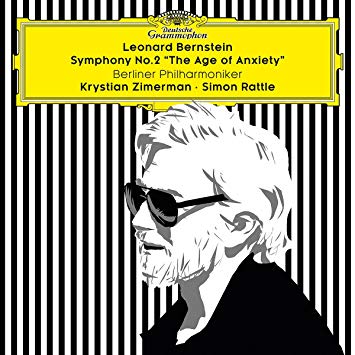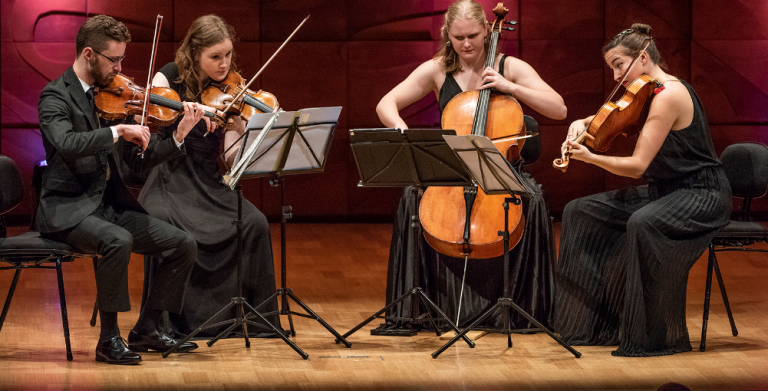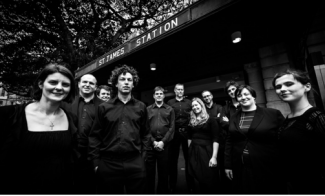Deutsche Grammophon Marks Bernstein’s Centenary With Album Release

Commemorating the birth centenary of the great Leonard Bernstein this week, Deutsche Grammophon has released a recording of his Symphony No 2, The Age of Anxiety. Unusually for a symphony, it is scored for solo piano and orchestra. In this recording Krystian Zimerman is the pianist with Sir Simon Rattle conducting the Berlin Philharmonic.
It is a recording which marks several events. When Leonard Bernstein celebrated his 70th birthday Krystian Zimerman was invited to perform Symphony No. 2 “The Age of Anxiety“ for the first time with him. Lenny was over the moon and asked Krystian to make a promise: “Please perform “Age of Anxiety” also when I am 100!” More than 30 years later at Bernstein´s centenary, Deutsche Grammophon have recorded Bernstein’s symphony live from Berlin.
The recording also marks the end of an era with Sir Simon Rattle’s last appearance with the Berliner Philharmoniker as the orchestra’s chief conductor, as well as celebrating the artistic partnership with Zimerman that includes performances both on stage and in the studio. Zimerman has been performing the Symphony No. 2 intensively since the end of Summer 2017 and is touring with Simon Rattle in 15 cities around the world until the end of 2018.
Bernstein’s symphony was inspired by W H Auden’s epic poem of the same name, first published in 1947. Its reception was mixed, but for many it reflected the mood of the post-war search for affirmation. T.S. Eliot described it as Auden’s “best work to date,” and the poem won the Pulitzer Prize in 1948. Bernstein considered it to be “one of the most shattering examples of pure virtuosity in the history of English poetry.”
Bernstein’s mentor Serge Koussevitzky, the Russian-born conductor, composer, double-bassist and music director of the Boston Symphony Orchestra (1924 to 1949), commissioned the symphony which premiered on April 8, 1949, with Koussevitzky conducting the Boston Symphony and Bernstein playing the piano solo.
Auden’s poem comprises no less than 80 pages and gives an account of four lonely strangers who meet in a New York bar during the war and spend the evening reflecting on life. It is divided into six sections: Prologue, The Seven Ages, The Seven Stages, The Dirge, The Masque and an Epilogue.
Bernstein has adhered to these sections and titles for the movements in his symphony which he revised in 1965. Asked if he thought it was important for listeners to have read the poem, Bernstein replied, “At the time I wrote it. I thought it was absolutely necessary; the poem and the Symphony were mutually integral…But now I don’t think so. The Symphony has acquired a life of its own.”






